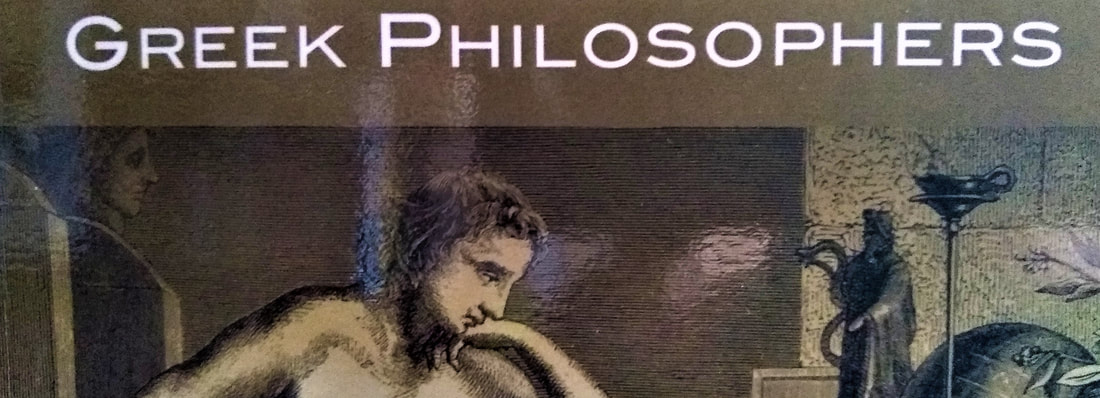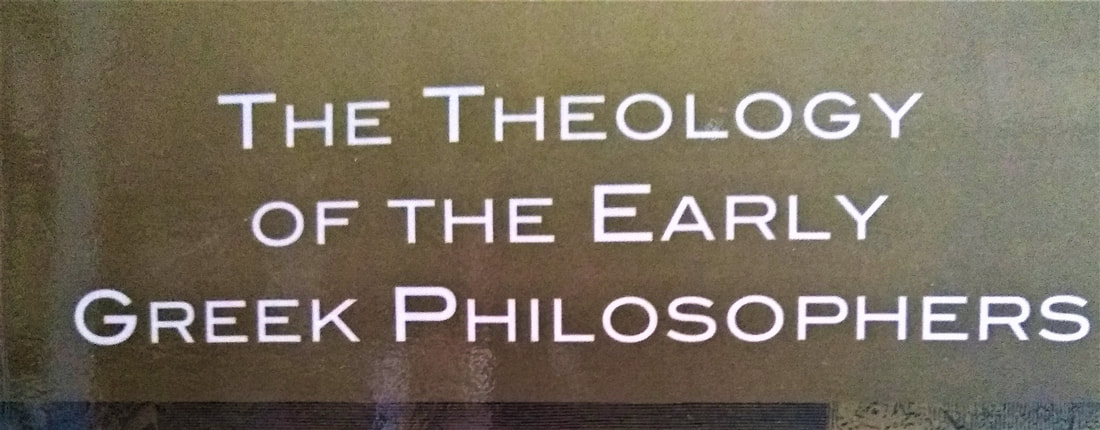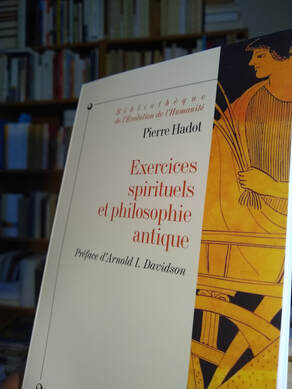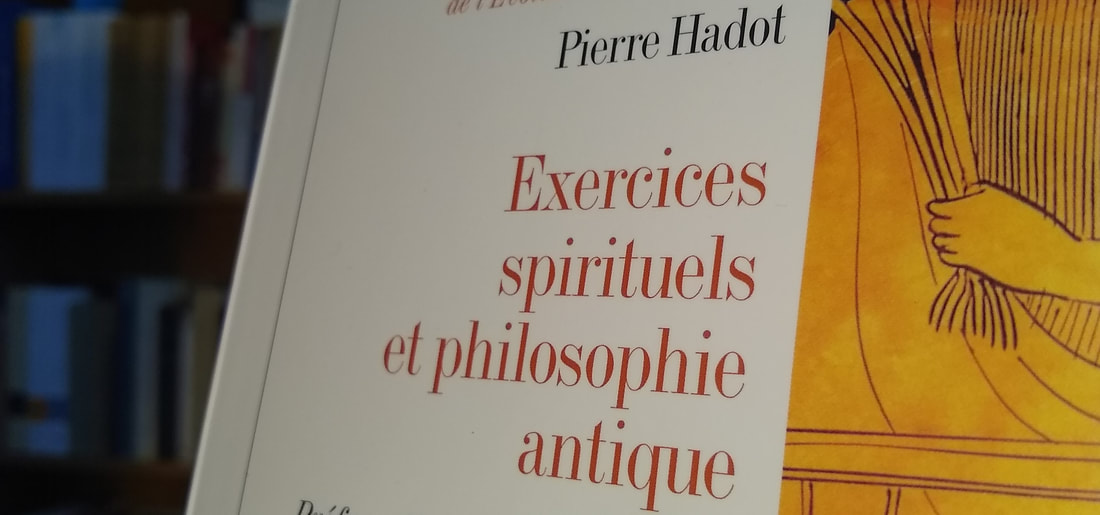1.The influence of religion on nascent philosophy
The birth of philosophy happened in a sociological context in which those who dedicated themselves to this new type of intellectual activity were in contact with other ;types of intellectuals, namely poets, historians, astronomists, engineers, legislators. These people all shared a culture, i.e. common understanding of the world and of human society rooted in and fashioned by the mythological tradition.
Interestingly enough, this tradition conveyed knowledge and value that were to determine the philosophical search, both in a positive and a critical way. Indeed, on the one hand, the cultural climate created by it inspired the first philosophers and helped them shape important concepts; on the other hand, philosophers opposed the mythological understanding of reality, because of its lack of rationality and universality.
From the myths, the first philosophers inherited the ideas of divinity, causality, order, unity, but rejected the idea that capricious entities, who were pretty much like capricious human beings, would be the explanation to what was going on in the cosmos. From the myths, they also inherited the idea that gods were separated from human beings, living in a world inaccessible to man, but also that interaction with them was possible.
That being said, the philosophers distanced themselves from traditional mythical knowledge because they considered nature to be, to a certain extent, self-explanatory. Instead of drawing explanations for the existence and the structure of things from gods’ random interventions, they looked for an impersonal cause, an archè, whose effect would be the cosmic reality itself, as an orderly reality.
2. Against a false narrative
This limitation of the philosophical research field to “the given realities of human experience” and the concomitant rejection of the traditional understanding of the divine, has been interpreted for decades by a great deal of rationalists scholars as a fatal blow to the religious mind of man. For them, the birth and rise of philosophy is primarily a freeing of the rational faculties of man, a dispeling of the darkness of religious superstition.
That idea still prevails today in our secularized philosophy departments. However, this view was strongly contested by one of the greatest Hellenists of the 20th century, Werner Jaeger. Let me quote at length from his book The Theology of The Early Greek Philosophers. You’ll see that the rejection of mythological explanation and the use of observation and rationality in the Greek attempt of understanding nature didn’t disqualify once and for all the question of the divine, but rather give a rational consistency to it that would foster the constitution of an enduring rational theology.
Here’s what Werner Jaeger says about the empirical approach of nature and its impact of greek thought:
One might well expect anyone with such a point of view to wash his hands of everything which we have been calling theology and banish it to the realm of the imaginary. Indeed, the fact that these new men are referred to as natural philosophers or ϕυσικοί [phusikoi] (the term is comparatively late) might seem to express in the very idea of ϕύσις [cosmos, nature] a delimitation of interest that automatically rules out any concern with the θεοί [the divine]. In confining themselves to facts ascertainable by the senses, the Ionians would thus appear to have taken an ontological position [i.e. a position on the things that exist] which is frankly non-theological.
But the surviving testimonia, scarce as they are, still show clearly that this rather obvious way of interpreting the intellectual attitude of the first philosophers is a false modernization. Quite apart from any testimonia, this falsity must be evident to the philologist [i.e. the specialist of ancient Greek], for he need only to reflect that to translate the word ϕύσις [physis] by our word ‘nature’ or ϕυσικοί by ‘natural philosophers’, fails to do justice to the Greek meaning and is definitely wrong. ϕύσις is one of those abstract formations with the suffix -σις which become fairly frequent after the period of the later epics. It denotes quite plainly the act of ϕῡναι [phunai] - the process of growth and emergence; that is why the Greeks often use it with a genitive, as in ϕύσις των ὄντων [phusis tôn ontôn] - the origin and growth of things we find about us. But it also includes their source of origin - that from which they have grown, and from which their growth is constantly renewed - in other words, the reality underlying the things of our experience.
In sum, Werner Jaeger is telling us that the quest for an explanatory principle of all the things that are in nature, the quest for a first cause through an inquiring into nature, lead the first philosophers not to utterly and definitively reject the idea of divine causation, but rather to purify it to some degree, so as to maintain an important distinction (that had already been implicitly made by the myths) between the source of nature and nature itself, that is, between the cause and the effect.
If this process of purification is not obvious in some Presocratic theories resembling ancient myths and explaining the cosmos by one or many of its elements (water, air, fire, etc.), it gets quite clear when we look at others theories, who find in an abstract principle (love, the undefined, the mind), the origin of all things. Down the road, the combination and articulation of all these abstract principles will give birth to natural theology, understood as a rational way of knowing God.
The birth of philosophy happened in a sociological context in which those who dedicated themselves to this new type of intellectual activity were in contact with other ;types of intellectuals, namely poets, historians, astronomists, engineers, legislators. These people all shared a culture, i.e. common understanding of the world and of human society rooted in and fashioned by the mythological tradition.
Interestingly enough, this tradition conveyed knowledge and value that were to determine the philosophical search, both in a positive and a critical way. Indeed, on the one hand, the cultural climate created by it inspired the first philosophers and helped them shape important concepts; on the other hand, philosophers opposed the mythological understanding of reality, because of its lack of rationality and universality.
From the myths, the first philosophers inherited the ideas of divinity, causality, order, unity, but rejected the idea that capricious entities, who were pretty much like capricious human beings, would be the explanation to what was going on in the cosmos. From the myths, they also inherited the idea that gods were separated from human beings, living in a world inaccessible to man, but also that interaction with them was possible.
That being said, the philosophers distanced themselves from traditional mythical knowledge because they considered nature to be, to a certain extent, self-explanatory. Instead of drawing explanations for the existence and the structure of things from gods’ random interventions, they looked for an impersonal cause, an archè, whose effect would be the cosmic reality itself, as an orderly reality.
2. Against a false narrative
This limitation of the philosophical research field to “the given realities of human experience” and the concomitant rejection of the traditional understanding of the divine, has been interpreted for decades by a great deal of rationalists scholars as a fatal blow to the religious mind of man. For them, the birth and rise of philosophy is primarily a freeing of the rational faculties of man, a dispeling of the darkness of religious superstition.
That idea still prevails today in our secularized philosophy departments. However, this view was strongly contested by one of the greatest Hellenists of the 20th century, Werner Jaeger. Let me quote at length from his book The Theology of The Early Greek Philosophers. You’ll see that the rejection of mythological explanation and the use of observation and rationality in the Greek attempt of understanding nature didn’t disqualify once and for all the question of the divine, but rather give a rational consistency to it that would foster the constitution of an enduring rational theology.
Here’s what Werner Jaeger says about the empirical approach of nature and its impact of greek thought:
One might well expect anyone with such a point of view to wash his hands of everything which we have been calling theology and banish it to the realm of the imaginary. Indeed, the fact that these new men are referred to as natural philosophers or ϕυσικοί [phusikoi] (the term is comparatively late) might seem to express in the very idea of ϕύσις [cosmos, nature] a delimitation of interest that automatically rules out any concern with the θεοί [the divine]. In confining themselves to facts ascertainable by the senses, the Ionians would thus appear to have taken an ontological position [i.e. a position on the things that exist] which is frankly non-theological.
But the surviving testimonia, scarce as they are, still show clearly that this rather obvious way of interpreting the intellectual attitude of the first philosophers is a false modernization. Quite apart from any testimonia, this falsity must be evident to the philologist [i.e. the specialist of ancient Greek], for he need only to reflect that to translate the word ϕύσις [physis] by our word ‘nature’ or ϕυσικοί by ‘natural philosophers’, fails to do justice to the Greek meaning and is definitely wrong. ϕύσις is one of those abstract formations with the suffix -σις which become fairly frequent after the period of the later epics. It denotes quite plainly the act of ϕῡναι [phunai] - the process of growth and emergence; that is why the Greeks often use it with a genitive, as in ϕύσις των ὄντων [phusis tôn ontôn] - the origin and growth of things we find about us. But it also includes their source of origin - that from which they have grown, and from which their growth is constantly renewed - in other words, the reality underlying the things of our experience.
In sum, Werner Jaeger is telling us that the quest for an explanatory principle of all the things that are in nature, the quest for a first cause through an inquiring into nature, lead the first philosophers not to utterly and definitively reject the idea of divine causation, but rather to purify it to some degree, so as to maintain an important distinction (that had already been implicitly made by the myths) between the source of nature and nature itself, that is, between the cause and the effect.
If this process of purification is not obvious in some Presocratic theories resembling ancient myths and explaining the cosmos by one or many of its elements (water, air, fire, etc.), it gets quite clear when we look at others theories, who find in an abstract principle (love, the undefined, the mind), the origin of all things. Down the road, the combination and articulation of all these abstract principles will give birth to natural theology, understood as a rational way of knowing God.




 RSS Feed
RSS Feed
